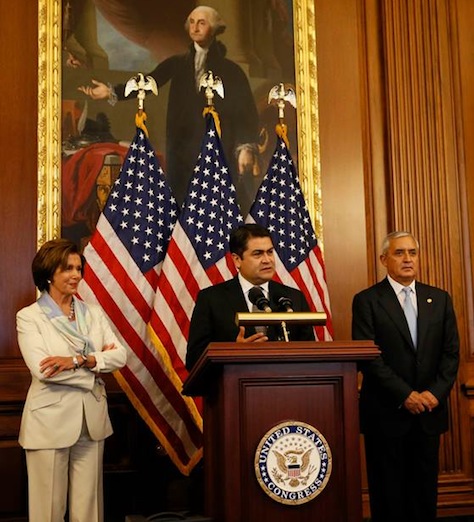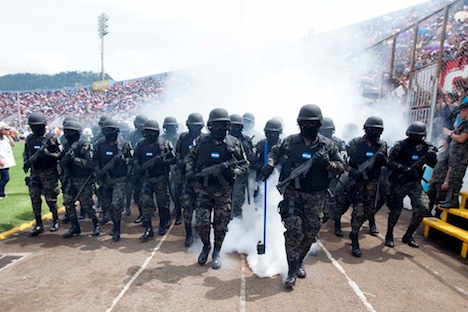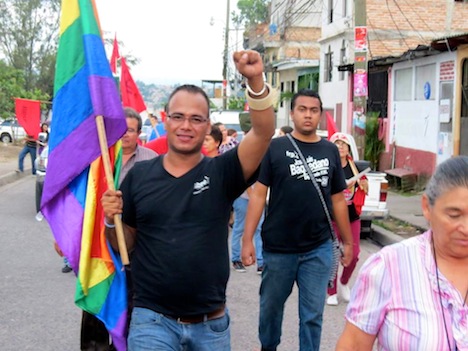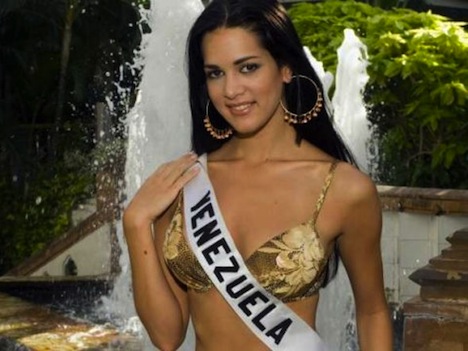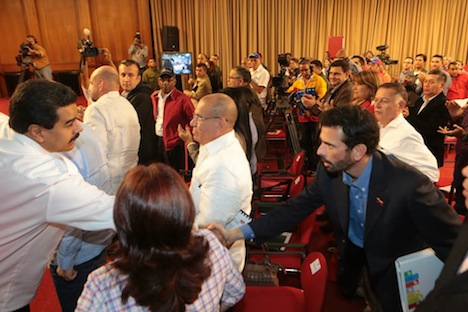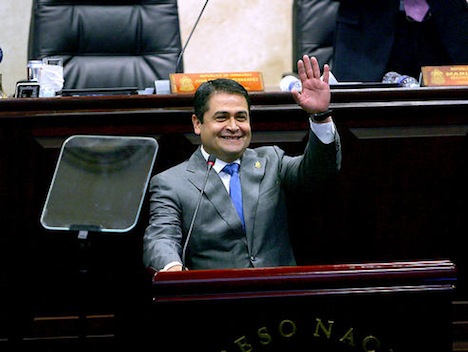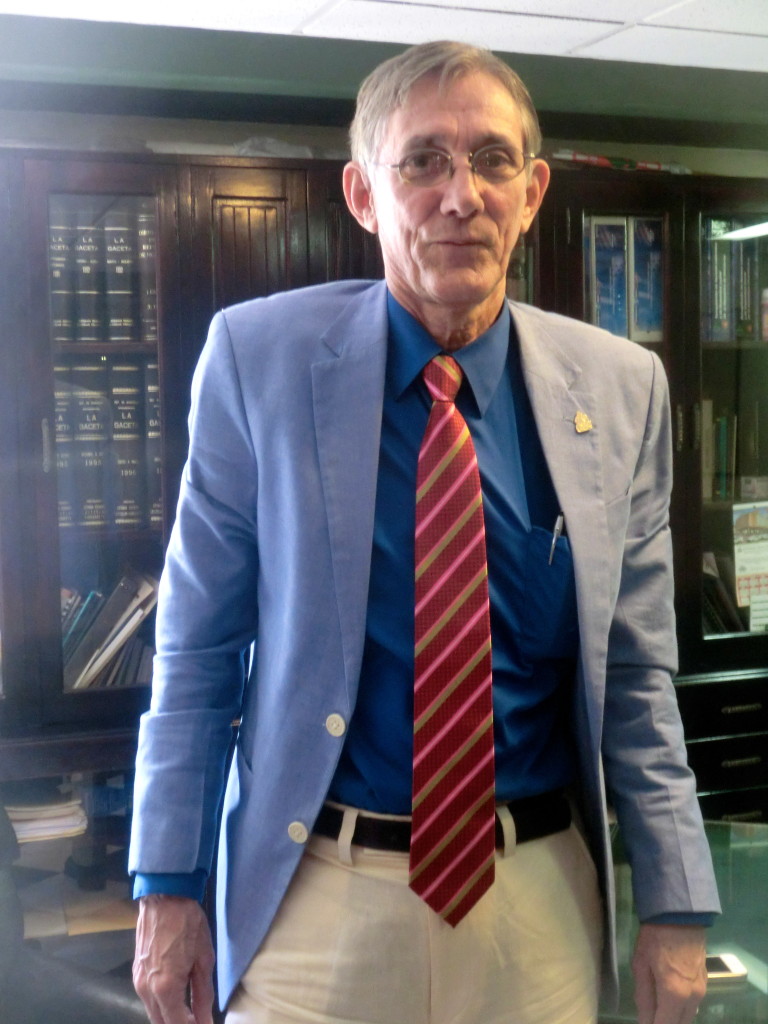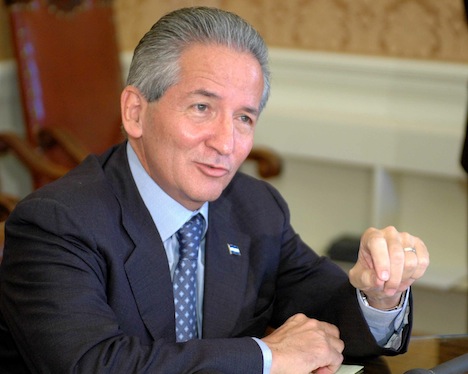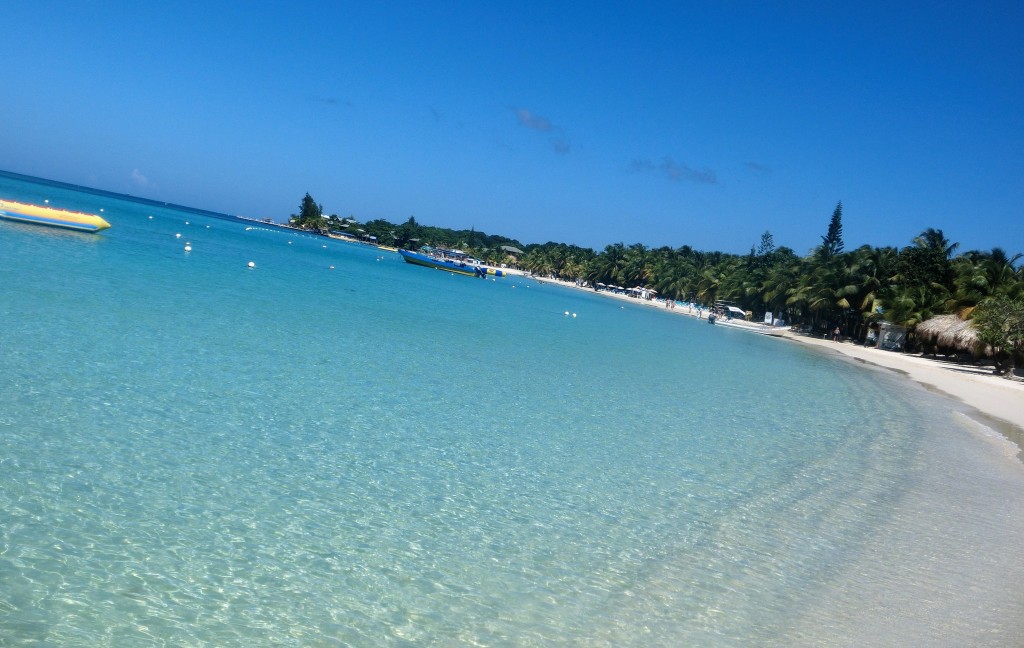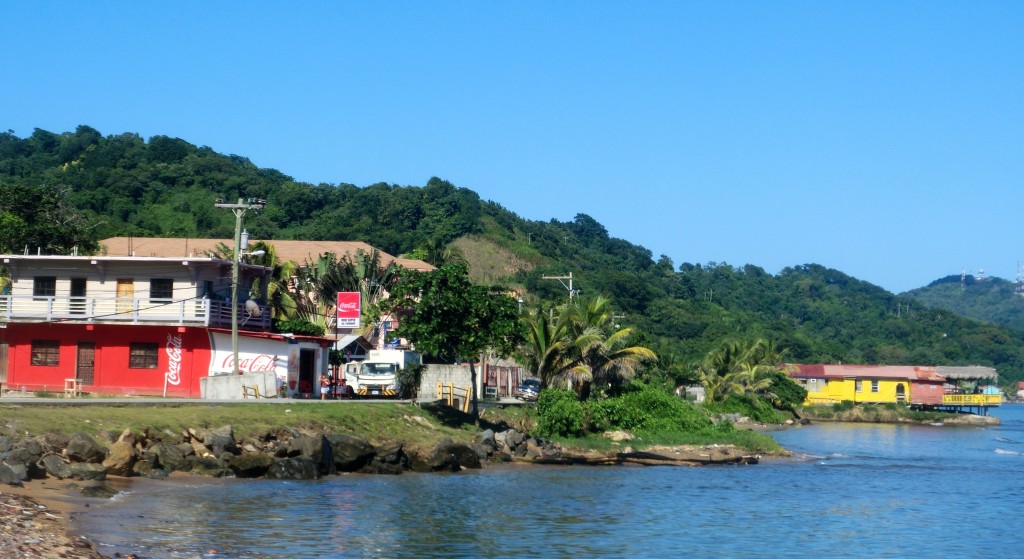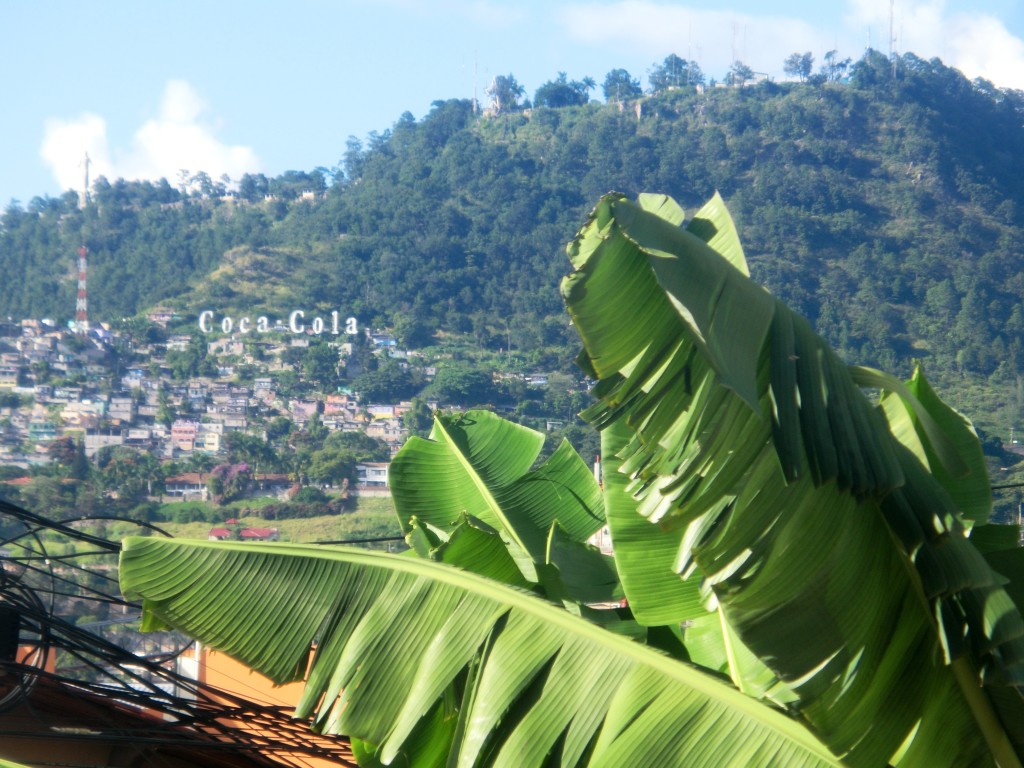
TEGUCIGALPA — I’ve spent some time examining why the upcoming Honduran election is so important to Central American politics regionally and, above all, to US foreign policy as it relates to Central America and Latin America.
But that’s not a thoroughgoing look at the actual election campaign itself — and what to expect on November 24, when Honduras will elect not only a new president, but all 128 members of its unicameral Congreso Nacional (National Congress).
Once upon a time, you could explain Honduran politics as a two-party contest, and above all as a set of dueling elites — the conservative Partido Nacional (PN, National Party) and the more centrist Partido Liberal (PL, Liberal Party). Though both parties were founded in the early 20th century, they essentially follow from the familiar 19th century narrative of an aristocratic conservative elite matched against a more free-market liberal elite. Both parties share in common an affinity for granting economic concessions to foreign interests throughout the 20th century, most notoriously to US-based banana companies (hence O. Henry’s christening Honduras as the original ‘banana republic,’ to state a cliché), and an even greater affinity for corruption.
Historically, the National Party really came into stride with the dictatorship of Tiburcio Carías Andino, who governed the country from 1932 to 1949 and Oswaldo López Arellano, who came to power via military force from 1963 to 1975 (with a brief interruption from 1971-72). Honduras made a firm turn toward democratic elections in 1981 and, since that time, with the exception of the June 2009 that ousted Manuel Zelaya from power, Honduras has generally selected its leaders through elections, however imperfect. The Liberal Party has elected five presidents, including Zelaya, and the National Party has elected three presidents, including the incumbent, Porfirio Lobo Sosa, who won an overwhelming victory of 56.6% against just 38.1% for Liberal candidate Elvin Santos in the most recent November 2009 election. Those elections were held during the interim administration of Liberal caretaker president Roberto Micheletti, who uneasily served as de facto president between the June 2009 coup and January 2010. Critics argue that they were conducted in an atmosphere of oppression, though, and many Latin American countries refused to recognize the result.
As the Honduran constitution limits the president to a single four-year term, Lobo Sosa is not eligible for reelection.
Four years later, on the eve of the 2013 presidential election, the country remains as polarized as in the immediate aftermath of the coup. But the advent of two new political parties has transformed the Honduran political scene, destabilizing its previously cozy two-party system. And with Honduras’s ignominious rise as the country with the world’s highest homicide rate (just over 90 per 100,000 according to UN figures for 2011), the campaign’s chief issue is security — how to reduce crime and violence that results not only from drug trafficking, but also from the police, who themselves are corrupted by drug traffickers.
The president of Honduras’s National Congress, Juan Orlando Hernández, is the candidate of the National Party, and Mauricio Villeda Bermúdez, an attorney with relatively little experience, is the candidate of the Liberal Party.
But the Frente Nacional de Resistencia Popular (FNRP, National Popular Resistance Front), which emerged in the aftermath of the Zelaya coup in protest, formed its own new political party in 2011 — the Partido Libertad y Refundación (LIBRE, Party of Liberty and Refoundation), a left-wing assembly of socialists, social democrats, indigenous and Afro-Honduran activists, human rights activists and women’s and LGBT activists. It selected as its candidate for the presidential election the spouse of the former president, Xiomara Castro de Zelaya, and her and her husband have long since left the Liberal Party. Moreover, sports reporter Salva Nasralla formed the center-right Partido Anticorrupción (Anti-Corruption Party), another populist right-wing party.
That’s made for a four-way race throughout much of 2013, though polls generally show a tightening of the race — Nasralla’s support has collapsed since the summer, and Villeda has stalled in third place, leaving Castro de Zelaya and Hernández in a close two-way race. Dueling polls show either Castro de Zelaya or Hernández in the lead, but the final poll from CID-Gallup (new polls are forbidden in the final month before the election), taken between October 9 and 15, shows Hernández with 28%, Castro de Zelaya with 27%, Villeda with 17%, Nasralla with 9%, others with 6% and fully 16% undecided or for none of the candidates — it should be noted that CID-Gallup has demonstrated a National Party bias in the past.
Though polling data should guide us, and it seems clear today that it’s a two-way race, it’s not necessarily clear that it will not be a three-way race by the time Hondurans vote later this month — especially in light of the Liberal Party’s traditional voter strength and ability to raise money, and especially because Villeda could emerge as a capable third, moderate force between the two extremes of the National Party and LIBRE candidates.
Moreover, the four-way party vote means that no party is likely to secure an absolute majority in the Congress. Since 1981, Hondurans have avoided splitting their tickets — so every time Hondurans have elected a Liberal president, they’ve elected a Liberal majority to the Congress (and the same with the National Party). This time around, though, it will be more difficult. In a relatively complicated system of multi-member districts, voters in each of the country’s 18 departments elect each of their representatives directly. So in Francisco Morazán, the populous department that includes and surrounds the capital Tegucigalpa, voters will have 23 votes to select from over 200 candidates. (If they miscount and elect more than 23, all of their votes will be voided; if they elect less than 23, corrupt officials haven’t been shy in the past about filling in their own preferences).
That system has virtually guaranteed that a handful of smaller parties have always received a few seats in the National Congress. This year, it means that each of the Liberal Party, the National Party and LIBRE will win many seats, likely enough to prevent any of the three parties from amassing a majority. That means the next president will have to form — or buy — a multiparty alliance.
Here’s a brief look at each of the three major candidates, their backgrounds and their agendas for Honduras. Continue reading Juan Orlando versus Xiomara: an analysis of the Honduran election →
![]()
![]()
